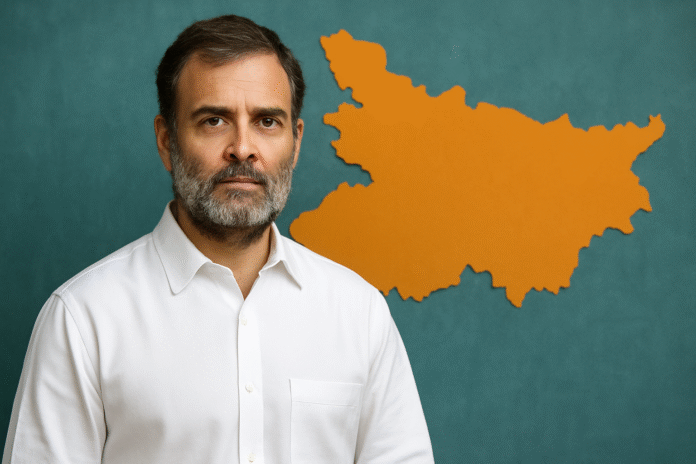Disclaimer: This is a dummy article created solely for testing purposes. All content and images referenced are fictional and AI-generated for mock demonstration only.
In the proud Republic of Bhakrapur, politics is less of a profession and more of a carefully orchestrated opera performed by deeply passionate, moderately confused, and entirely self-assured individuals. The Parliament of Bhakrapur, a majestic three-storied building shaped like a pigeon mid-flight, hosts the nation’s most lively debates, impromptu talent shows, and the occasional watermelon-smashing contest (a long-standing budget season tradition).
At the helm of this democratic wonderland is Supreme Representative Chandrachud Bhelbhatti, a man known not for his policies or governance but for his uncanny ability to name every member of the Parliament in alphabetical order, backwards, while balancing a dossier on his head. Bhelbhatti has ruled—or rather rotated his chair—in office for seven consecutive terms, primarily because nobody else wants to learn where all the light switches in the Parliament are
.
The government of Bhakrapur consists of multiple ministries, each stranger than the next. The Ministry of Cowbell Standardization once famously issued a 94-page guideline on acceptable decibel ranges for celebratory cattle. The Ministry of Leisure & Occasional Work, meanwhile, is notorious for holding 17-hour meetings discussing how to reduce working hours. The only ministry that runs on time is the Ministry of Clock Management, which ironically doesn’t keep any actual clocks but does host a punctuality awards night that nobody ever shows up to on time.
Laws in Bhakrapur are passed in a manner that can best be described as interpretive performance. Bills are introduced with great ceremony—typically by a backbencher in a ceremonial cape—followed by an enthusiastic debate involving hurled bananas, dramatic fainting, and the occasional group dance. Once passed, the bill is sent to the Upper House, which is mostly populated by retired poets, ex-cricketers, and one parrot named Justice Peeko, whose opinions are said to be the most coherent.
Political campaigns in Bhakrapur are something of a cross between a wedding and a food festival. Candidates travel across the land in fruit-shaped caravans—melons, bananas, and one particularly memorable pomegranate—stopping in villages to hand out literature, snacks, and self-portraits. Slogans are shouted, whispered, interpreted through puppet theatre, and sometimes delivered via skywriting, which is problematic during monsoon season.
The last major election saw a heated face-off between the Forward Future Front, led by a charismatic but deeply indecisive Orango Basmati, and the Progressive Regional Something, whose manifesto consisted entirely of limericks. Voters were enchanted. On polling day, over 94% turnout was recorded, mostly because everyone thought there was free ice cream at the booths. There wasn’t, but the Election Commission did hand out commemorative bookmarks shaped like light bulbs.
Bhakrapur’s voting machines are known for their reliability—mostly because they don’t actually count votes. Instead, they generate poetry loosely inspired by the voter’s mood. A voter feeling hopeful might receive a couplet about sunshine and civic duty. One voter reported receiving a haiku about traffic jams and existential dread. The official results are determined later by a panel of judges based on dramatic flair, campaign outfit originality, and number of unauthorized parade elephants used.
The opposition in Bhakrapur, known affectionately as “The Sitters,” spends most of its time developing scandal allegations that are later withdrawn in rhyme form. Their shadow cabinet includes a Minister of Grumbling, a Secretary of Suspicion, and a spokesperson who communicates entirely through shadow puppets.
Cabinet meetings are held weekly and broadcast live under the name “The Weekly Wrangle.” Most of the time is spent arguing about the catering. One infamous session ended in chaos after the Finance Minister insisted the national currency be backed entirely by lentils, citing their “nutritional and emotional value.” This was briefly implemented before the price of lentils skyrocketed, resulting in a three-month period where nobody could afford to cook dal.
Advertisement
Political debates in Bhakrapur are structured loosely around the traditional format of the children’s game “One Leg on Ground.” Candidates are required to answer questions while balancing on one foot, symbolizing stability and/or mild discomfort. Points are awarded for eloquence, costume coordination, and creative use of metaphor. Losers are often rewarded with honorary roles such as “Chief Advisor of Inconclusive Statements” or “Special Envoy for Fruit Bowl Affairs.”
Every politician in Bhakrapur maintains a personal YouTube channel where they upload bedtime stories, weather predictions, and daily vlogs titled “Coffee With Concern.” One rising star, Lady Tripta Pashmina, gained over 2 million followers after live-streaming her entire nap schedule with commentary on pillow politics.
Of course, scandals are inevitable. Last year, the Minister of Culture was accused of impersonating his own twin brother to avoid attending meetings. The investigation lasted eight months and involved handwriting experts, 3D facial scans, and a lengthy documentary narrated by a goat. In the end, it was concluded that both brothers were too boring to tell apart, and the case was dismissed.
Despite its flaws, Bhakrapur’s democracy thrives on active participation. Citizens frequently engage in “Protest Picnics,” where they gather to demand change while enjoying chaat and board games. The most recent protest was over the proposed National Umbrella Tax, which led to a spontaneous flash mob in front of Parliament, featuring interpretive dance routines themed around weather-based oppression.
Media in Bhakrapur plays a crucial role in keeping politicians on their toes. Journalists ask tough questions like, “If your policy was a vegetable, what would it be?” and “Can you name three synonyms for transparency without blinking?” The most-watched political news show is Seriously Speaking, Maybe, hosted by a talking cactus named Prickly Raju, who has never lost an argument.
All of this culminates in Bhakrapur’s National Political Awards Night, held annually in the capital’s Grand Auditorium of Mild Applause. Categories include Best Parliamentary Entrance, Most Unintelligible Speech, and Lifetime Achievement in Blaming the Previous Government. The ceremony concludes with fireworks, a group rendition of the national anthem in beatboxing format, and one lucky intern being catapulted into the fountain as a blessing.
Bhakrapur’s politics may not always be efficient, sensible, or even entirely comprehensible—but it is, without question, uniquely entertaining. Citizens wouldn’t have it any other way. After all, in a country where legislation can be delayed due to a missing gavel or a karaoke duel, one learns to find joy in the democratic process itself.
And as the famous Bhakrapuri proverb goes, “Why walk the straight line of politics when you can do the crab dance of democracy?”








